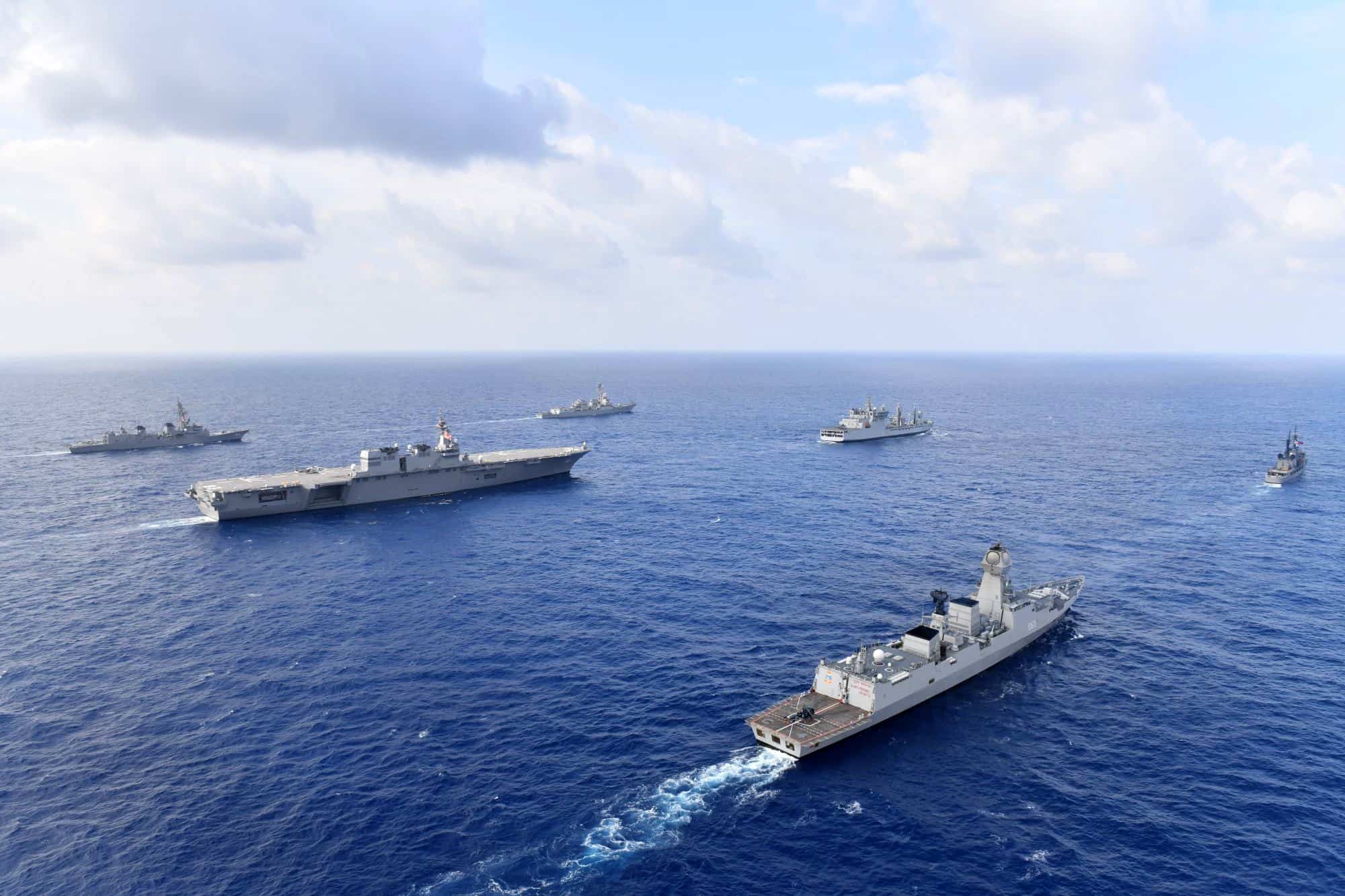By Catherine Wong /SCMP/ – Washington needs long-term strategies and “like-minded partners” to compete with Beijing in a “marathon” race to lead the international order, according to a senior US defence official.
David Helvey, acting assistant secretary of defence for Indo-Pacific security affairs, said the Chinese Communist Party’s challenge to the international rules-based order would be a marathon, not a sprint, in an exclusive opinion article for the South China Morning Post to be published on Saturday.
“Together, we must be resilient as we face this long-term challenge by continuing to uphold and represent core principles such as respect of sovereignty, transparency, peaceful resolution of disputes, and freedom of navigation and overflight.”
Helvey is in charge of the Trump administration’s Indo-Pacific strategy – a concept which has become a cornerstone of the United States’ Asia policy. It extends the Asia-Pacific region from South Asia to the Pacific coast of the US and is seen by Beijing as an effort to rally regional powers like India and Japan against China’s rise in the region.Rivalry between the US and China has intensified and broadened over the past few years, from trade conflicts to security issues over the South China Sea, Taiwan and, most recently, Hong Kong. China’s Foreign Minister Wang Yi has warned the US is pushing the two countries towards “a new Cold War”.
While “China’s rise does not mean conflict is inevitable, nor does competition inevitably lead to conflict”, the international community cannot “sit idly by as China’s authoritarian leaders continue to bend, disregard, or rewrite the rules to impose … their preferences”, Helvey said.
“That is why now, more than ever, like-minded partners must take action by being prepared, networked, and resilient so that together we can secure peace and prosperity for decades to come,” he said.Helvey said Hong Kong’s sweeping national security law was the latest example of a pattern of behaviour by Beijing which “bends, disregards or rewrites rules in its favour in the pursuit of domestic and geopolitical ends”.
The US should “remain focused on deterring aggression” by maintaining a ready and capable force, developing innovative operational concepts, and investing more to solidify its technological advantage, including in space and cyberspace.
“We must also be resilient in protecting our communications infrastructure and networks, economies, and political and social institutions from the CCP’s malign influence in order to preserve our shared interests and security.”
Helvey said the US needed to look for opportunities to include new partners in its efforts and called on existing allies and partners to boost their national defence and “contribute to the defence of our shared interests”, as well as deepening their interoperability, joint training, combined exercises, and bilateral planning so they could act “coherently and effectively together”.
Are Xi Jinping’s China and Donald Trump’s US destined for armed conflict?
Liu Weidong, an expert on international relations with the Chinese Academy of Social Sciences, said the Trump administration was now strengthening its efforts to rally allies and partners in containing China.
“Currently the Sino-US tension has been shifted towards the direction of a Cold War which points to ideological rivalry,” he said. “The US has been criticised for relying on itself too much and not working together with its allies. Now it is using every opportunity to incite waves of anti-China sentiment.”
Collin Koh, a research fellow from the S. Rajaratnam School of International Studies at Singapore’s Nanyang Technological University, said it was expected that the US and its regional allies would have a more robust engagement, after years of concern over American commitment to the region under US President Donald Trump’s America First directive.“Clearly the Indo-Pacific has formed the centrepiece of its policy towards this region, with an eye, of course, on China. That said, one would argue that Trump’s policy towards the region is suboptimal because it focuses too much on military and security aspects, less so on economic when compared to Beijing’s Belt and Road Initiative outreach,” he said.






